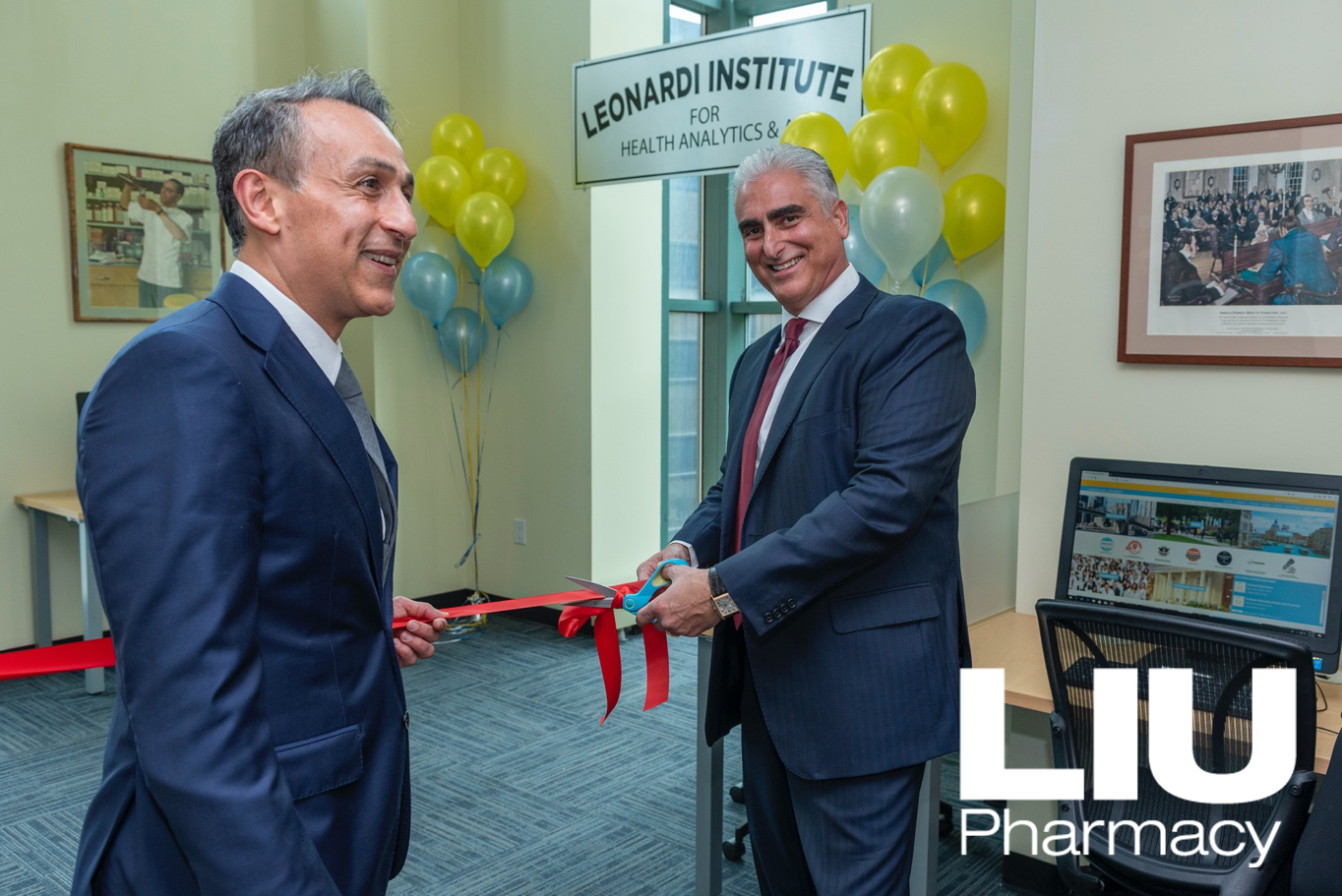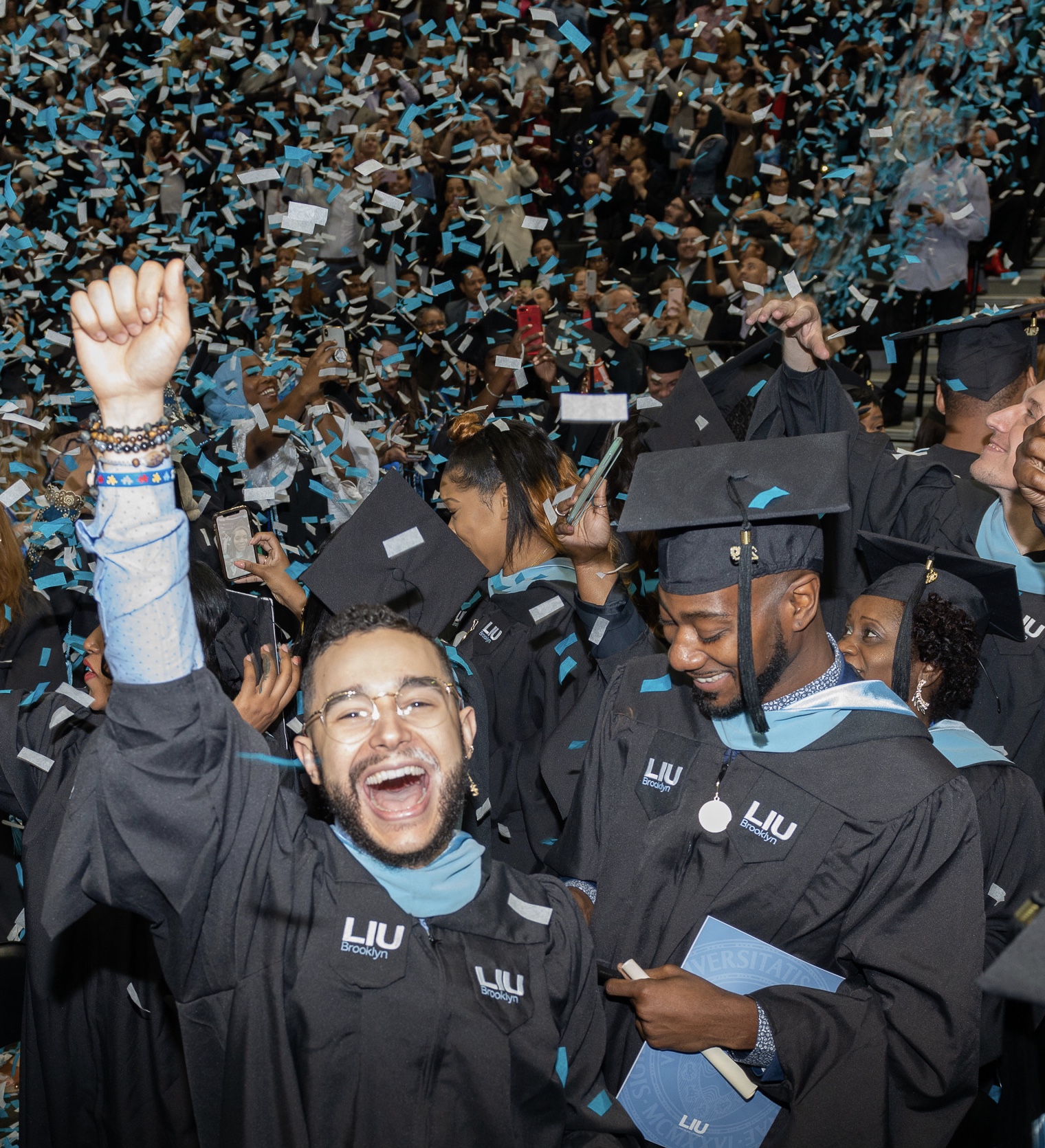Dr. Murad (Pharmacy ’62), underwrites a scholarship that is awarded annually to one graduate student at Long Island University’s Arnold & Marie Schwartz College of Pharmacy and Health Sciences, which is where he completed his own pharmacy degree. This year’s scholarship recipient is Galia Benchaya, an international student from Montreal who is pursuing a degree in Pharmaceutics—Cosmetic Science. Galia’s goal is to pursue a career that combines pharmacy, beauty, and wellness and to build a network of like-minded health professionals. Her favorite Murad Insight is, “When you are healthy, you are beautiful.”
Dr. Murad: Congratulations on being the recipient of the Murad Pharmaceutical Scholarship! You were highly recommended by one of your professors, for your “passion and drive for increasing the pharmacist’s influence pertaining to preventive health, with a focus on pharmacy, beauty, and wellness.” That is very much how I feel about pharmacy, as well. Will you tell us a little about yourself?
Benchaya: My family comes from a Mediterranean background. My grandparents are from Morrocco, and then moved to Israel. My father was born in Israel and moved to Canada when he was 10. My mom was born in Montreal, and her family is also originally from Morocco.
I was born and raised in Montreal, Canada, and at the age of 23 decided that I was going to pursue a career in pharmacy. I left behind my family, which was very hard for me because I’m very, very close to my family, especially my father. As the oldest of six siblings, I’m basically the second mother of the house. So it was very hard to leave, but I knew this was something I wanted to do. And honestly, as it turned out, the distance wasn’t that big a deal. I’m still as close as I always was to my family. I visit often, and I also get to pursue my dream.
In Montreal, we graduate a year earlier than in the States, so I took a gap year and went to Israel for a year. When I came back to Montreal, I did a two-year degree in health science and then a three-year degree where I majored in pharmacology at McGill University. I had the best education there. Truly, I loved every second of it. And now I’m about to enter my third year here at Long Island University Pharmacy.
Dr. Murad: What motivated you to pursue a degree in pharmacy?
Benchaya: I went to a very competitive high school where it was very simple: you got good grades and you went to medical school. There was no in-between. So that’s where I was headed, kind of by default. My advisors kept telling me that majoring in pharmacology gave me the best chance of getting into medical school, so that’s where I was headed. I was shadowing a doctor in my second year of pharmacology, and honestly, as much as I loved the knowledge that being a doctor entailed, I didn’t love the practice of medicine. I wasn’t passionate about it, and I’m a very passionate girl. So I didn’t like that I didn’t love it.
Then, however, I took a drug development class, and I was obsessed with it! I was constantly studying and reading more. I couldn’t get enough of it. That’s when I realized I wanted to go into the pharmaceutical industry. It makes sense because, although I’m a very intellectual girl, I’m also very into beauty and fashion and looking good. Everyone in my house is that way: My father has a clothing business; one of my grandmothers is an aesthetician, and the other is a hairdresser. However, I also have always had this love and passion for science. Cosmetic science combines both! That’s how I found LIU’s degree in Pharmaceutics—Cosmetic Science.
For me, it is literally the best of both worlds. I get to be in the beauty industry, but I also get to be in pharmacy, which is in the medical field, which I also love. Then I started working for a pharmacy, and the main person who was doing the compounding got sick, giving me the opportunity to make compounds—creams to be exact. I realized, “Oh, my God. This is what I want!” I ended up on a plane and landed in New York to attend LIU. It was probably the best decision I’ve made.
Dr. Murad: Tell us more about this degree.
Benchaya: Basically, it involves the chemistry of drug making, along with the chemistry of cosmetics, which include any product designed to improve the health, look, and feel of your skin, hair, and nails. So I’m studying ingredients that can be delivered through the skin, as well as colorings, fragrances, and so on. It’s what you always talk about, Dr. Murad, combining wellness and pharmacy. It has taught me that there literally is a science to beauty. There is such a thing as a medical-grade cream.
Dr. Murad, you often talk about inside-out beauty. I feel as if I’m approaching wellness from the outside in. Getting a manicure or a facial can make me look and feel like a million dollars. And if the ingredients are healthy, it can literally make me feel like a million dollars inside, as well. Also, filling prescriptions, giving vaccines, and giving advice to help people makes me feel like a million dollars. It really is a symbiotic relationship: we nurture health and beauty from the inside out and also from the outside in. The two complement each other perfectly—and I feel like so many people do miss that point.
My father is a very savvy businessman, and I told him, “Dad, once I graduate, I want to open a cosmetic pharmacy, where we would compound creams, serums, moisturizers, sunscreens, everything, but at a medical grade. And it does seem as if the industry is already moving in that direction. For example, bimatoprost is a drug to treat glaucoma that is now being marketed—with a prescription—to grow eyelashes. The entire field of cosmeceuticals was created to bring pharmacy to the health and beauty of the skin. You know that, Dr. Murad, because you started it! My vision is for people to visit their pharmacist, not because they’re sick and picking up a prescription, but because they want to feel their best and look their best.
Dr. Murad: Tell us about the Cosmetic Science Club at LIU.
Benchaya: The club’s aim is to bridge the gaps between cosmetic science and wellness. For example, take the various ways of promoting skin health. One is with cosmetic products such creams, toners, serums—basically, the entire Murad skincare line. Another is exercise, because when you exercise, it also really benefits your skin. So we want to create a collaboration between a big skincare company and SoulCycle, which is a cycling studio, to emphasize the point that both are ways to promote skin health. That’s one idea we have. We also bring people who are working in the field of cosmetic science to school to give lectures and participate in our newsletter. For example, L’Oreal has a pharmacist on their team, and we invited her to join us. We’re raising awareness of the opportunities for pharmacies in wellness and aesthetics.
Dr. Murad: What did your dad think about your cosmetic pharmacy?
Benchaya: Oh, he loved it.
Dr. Murad: So is that your plan upon graduating?
Benchaya: It’s something I would love to do, but I also have other ideas about where I want to take my career. I also would love to work in drug development, but again, more towards the wellness area, anything that has to do with aesthetics creams. For example, I would like to create an alternative to Botox—an overnight product that would have the same effect as Botox or fillers but without a needle.
I’d also love to write a book someday, but that’s beside the point right now. I never want to stop learning. I just want to continue learning and growing within the field and knowing everything there is to know. I’d also love to teach because that is developing the potential of the people coming along behind you. But my main goal, really, is to work in the pharmaceutical industry to combine aesthetics and wellness.
Dr. Murad: It sounds like the problem might be that there are only 24 hours in a day.
Benchaya: Right? It’s actually a huge problem! I’m always saying, “Why can’t the day be longer?” Even though I’m up at 5 every morning to get to my Pilates class.
Dr. Murad: Well, you’ll just have to live a long time! How many students are in the Cosmetic Science Club?
Benchaya: We have 110 people in our WhatsApp group chat. And every time we hold an event, we have crowds of people. It’s like every time there’s a half-mention of the word cosmetic, everyone’s so interested in it because it’s so different and so refreshing. It’s refreshing that there’s more to being a pharmacist than filling scripts. Really, Dr. Murad, like you’ve said, pharmacists have all this training and knowledge; they should have more opportunities to use it for the benefit of their patients.



